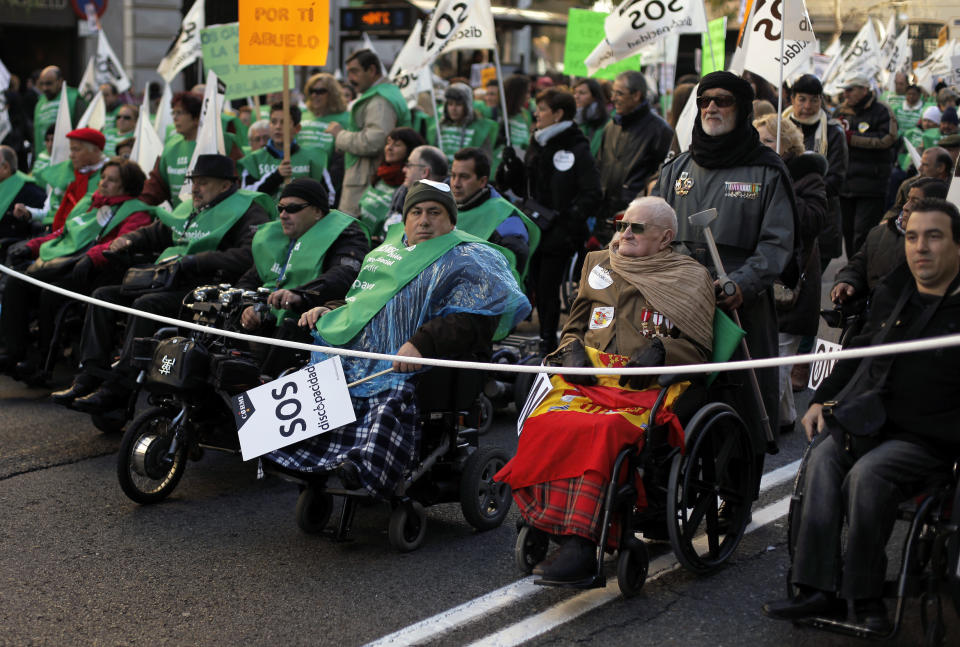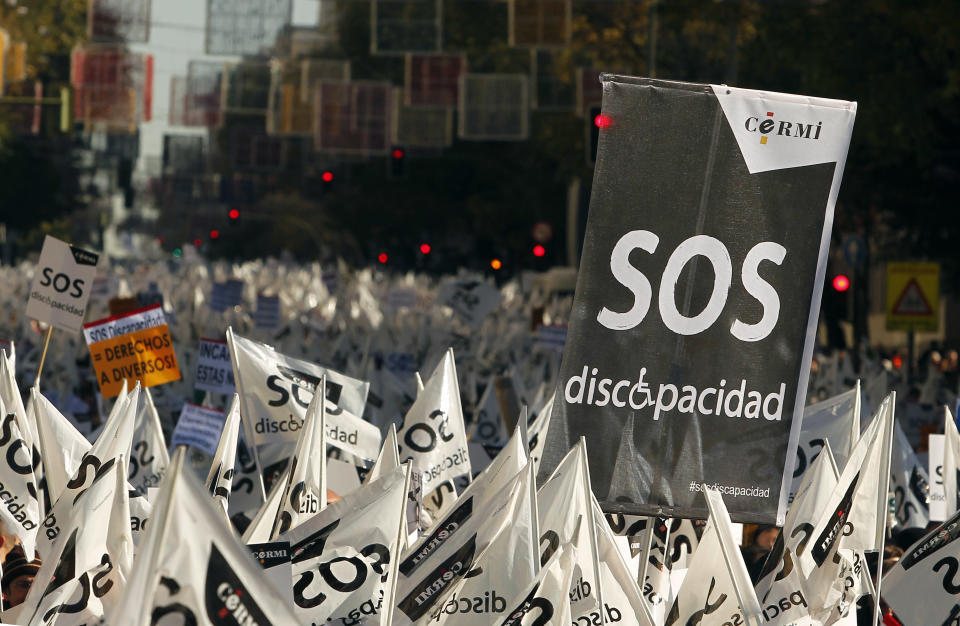Spain's disabled protest austerity cuts
MADRID (AP) — Disabled people took to the streets of Madrid on Sunday in the latest protest against broad austerity measures, angry over government cutbacks reducing services, closing disability centers and forcing care workers from their jobs.
More than 10,000 people, many in wheelchairs or being led by guide dogs, marched in a demonstration with the slogan "SOS Disability: Save our Rights, Inclusion and Welfare."
Health care spending falls under the responsibility of regional governments, many of which are indebted. Some local administrations have failed to pay medical centers, forcing cuts in services and a slowdown in the distribution of medicine.
Protester Manuel Gonzalez said assistance had decreased and in some cases dried up completely.
"We don't want to be taken back 40 years," he said.
Luis Cayo, president of the Spanish committee representing the interests of people with disabilities, said regional governments were in arrears of around €300 million ($389.6 million) to care workers and associations responsible for looking after the needs of disabled people across the country.
"To some this sum on a national scale may not be huge, but for us it's everything. Without it, we'll simply have to shut down," said Cayo, who said one in 10 people in Spain had some form of disability.
Earlier in the day, many thousands of people held hands to form chains around several of Madrid's main hospitals to show their support for Spain's national health service, they said.
Regional government health councilor Javier Fernandez-Lasquetty said that although the action showed how much Madrid's residents cared for their hospitals, government cuts were needed to save medical institutions from the worst effects of a deep financial crisis.
Blind protester Francisco Vicente, 54, said the government was neglecting disabled people in many ways, including failing to provide a transport system and even sidewalks that were not a hazard for visually impaired citizens.
"We don't count for those in power, except when they seek our votes," Vicente said.
Spain is immersed in a double-dip recession with 25 percent unemployment. The government of Prime Minister Mariano Rajoy is implementing harsh austerity reforms aimed at avoiding a financial implosion and a national bailout like that required by Greece, Portugal, Ireland and Cyprus.
However, the level of bad debt in the country's banks has risen to record levels and the 16 other countries that use the euro as a currency have agreed to lend Spain up to €100 billion to help support banks weighed down by bad loans and investments.
Overspent regions have found it difficult to refinance their debt through money markets and have had to turn to the central government for aid, while cutting budgets.
Spain's regions have a combined debt of €145 billion ($185 billion) — of which around €36 billion has had to be refinanced this year.
"We know times are hard for everyone, but we who have begun life with so little are on the verge of collapse, and we can't just disappear," Gonzalez said.








